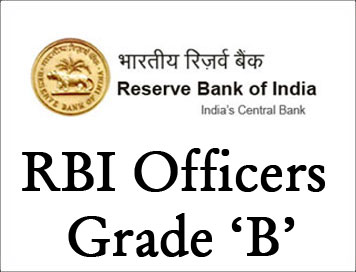(Paper) RBI Grade 'B' Officer Mains Exam Paper II - 2015 "English" set-B

RBI Grade 'B' Officer Mains Exam Paper II - 2015
ENGLISH - Set B
Q. 1. Write an essay of about 400 words on any one of the following topics: 50 marks
- a. How can India gain from China’s stock market crisis ?
- b. India’s GDP growth will keep rising in the next five years.
- c. Tolerance should be the new Religion!
- d. Indian economy needs Capital Investment.
- e. Man is responsible for Climatic disasters.
Q. 2. Make a précis of the following passage in about 140 words and give it a suitable title. 50 marks
A committee set up by the government to review the international competitiveness of the Indian financial sector has flagged capital controls, mistakes in financial sector regulation and taxation as primary reasons for loss to offshore markets.
The finance ministry has sought comments on the first report submitted by a standing council set up by the UPA government.
"The Report has recommended phasing of the reform process into short-term actions, medium-term goals and long-term goals and clearly indicates the implementing agencies for them," the finance ministry said releasing the report for public comments.
The standing council is headed by the secretary, department of economic affairs and apart from the chief economic advisor has ten outside experts including SBI chairperson Arundhati Bhattacharya, managing director of UTI Mutual Fund Leo Puri and Ravi Narain, former MD & present Vice chairman, NSE.
The finance ministry has called for comments by October 6 and the government will thereafter take a view of the recommendations.
This committee has identified five reasons for corrective action to develop Indian finance so that it does not lose any further ground to offshore markets, noting that there has been a sharp rise in overseas financial activities on Indian assets, especially derivatives on the rupee and the market index, Nifty "An active market for these has developed offshore," the report says estimating $20 billion daily turnover in these assets, market that should come to onshore in India for the reasons identified.
Most importantly, financial services is a labour and technology intensive business and these can allow India to be globally competitive in financial services.It has identified a BondCurrency-Derivatives nexus for a more effective monetary policy mechanism in India and for that reason too Indian finance needs to develop. "If India is able to regain market share within the onshore market, and if the Bond-Currency Derivatives Nexus evolves locally, the central bank will become more effective with a strong monetary policy transmission that is
able to help counteract business cycle fluctuations," the report notes.
"From the viewpoint of a global customer, sending an order to (say) the CME in the US or the Singapore Exchange (SGX) is frictionless," the committee notes why these offshore centres have managed to trade Indian assets in a big way.
"For India to compete in the new globalised world of finance, our markets must match these competitor markets in three respects: rationalise and ultimately remove capital controls, achieve technically sound financial regulation, and shift to residence-based taxation," the committee suggests flagging KYC contents and its implementation as a typical irritant.

